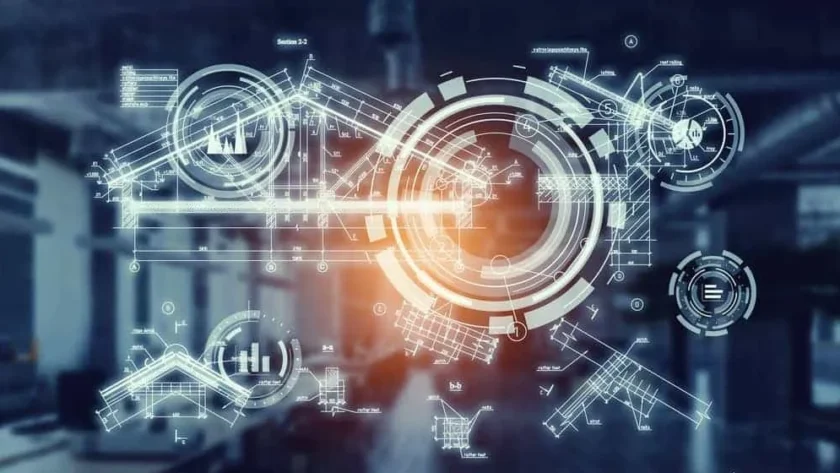Technology is advancing at an unprecedented pace, and by 2025, the digital landscape will look vastly different than it does today. Emerging technologies like artificial intelligence, quantum computing, and 5G are set to revolutionize industries and redefine the way we live, work, and interact with the world. As these innovations continue to develop, we can expect transformative changes in nearly every aspect of our daily lives. Let’s take a look at some of the key technological advancements that will shape our future in 2025.
1. Artificial Intelligence (AI) and Machine Learning
Artificial Intelligence (AI) and machine learning (ML) will continue to dominate technological advancements by 2025. These technologies are already being integrated into a wide range of industries, from healthcare and finance to transportation and entertainment.
AI will become more intuitive and capable of solving complex problems with minimal human intervention. By 2025, AI systems will be able to understand and predict human emotions, leading to more personalized and efficient user experiences. For example, AI-powered virtual assistants will not only answer questions but also anticipate needs, make recommendations, and manage tasks autonomously.
Machine learning algorithms will play a crucial role in data analysis, helping businesses make smarter decisions and improve customer experiences. The combination of AI and ML will also enable automation across many sectors, streamlining processes and reducing costs.
2. Quantum Computing: Unlocking Unmatched Computing Power
Quantum computing is set to revolutionize the world of technology. Unlike traditional computers, which process information in binary, quantum computers use quantum bits (qubits), enabling them to process exponentially more data at once.
By 2025, quantum computers will be capable of solving problems that are currently beyond the reach of classical computers. This will have profound implications for industries like cryptography, drug discovery, climate modeling, and material science. For example, quantum computing could accelerate the development of new medicines by simulating molecular interactions at an unprecedented speed.
While quantum computing is still in its early stages, the next few years will see significant breakthroughs that push this technology into practical applications, creating opportunities for innovation across multiple sectors.
3. 5G and the Expansion of the Internet of Things (IoT)
The rollout of 5G networks will be one of the most transformative technological advancements by 2025. With faster speeds, lower latency, and higher bandwidth than 4G, 5G will enable a new wave of connected devices and applications.
One of the biggest impacts of 5G will be on the Internet of Things (IoT). By 2025, billions of IoT devices will be interconnected, from smart home devices and wearables to autonomous vehicles and industrial machines. 5G’s enhanced connectivity will enable real-time communication between these devices, making cities smarter, transportation systems more efficient, and industries more automated.
For example, autonomous vehicles will rely on 5G networks to communicate with each other and traffic infrastructure in real-time, ensuring safer and more efficient transportation. Similarly, smart homes will become even more intelligent, adjusting lighting, heating, and security systems automatically based on user preferences and environmental conditions.
4. Augmented Reality (AR) and Virtual Reality (VR)
By 2025, Augmented Reality (AR) and Virtual Reality (VR) technologies will become mainstream, offering immersive experiences that blur the lines between the physical and digital worlds. These technologies will impact entertainment, education, healthcare, retail, and more.
In entertainment, VR will provide fully immersive gaming experiences, while AR will enhance interactive storytelling and location-based experiences. For education, AR and VR will allow students to experience historical events, explore the human body in 3D, or simulate complex scientific experiments, all in a fully interactive, hands-on environment.
Healthcare will benefit from AR and VR as well, with medical professionals using these technologies for surgery simulations, medical training, and patient rehabilitation. AR will also assist patients by overlaying important health data directly onto their field of view, making medical procedures more efficient and less invasive.
In retail, AR will allow customers to try on clothes virtually, visualize furniture in their homes, or preview products before making a purchase, leading to more engaging and personalized shopping experiences.
5. Blockchain and the Decentralization of Data
Blockchain technology is expected to play an increasingly important role in securing data and transactions. Initially popularized by cryptocurrencies like Bitcoin, blockchain’s potential goes far beyond digital currencies. By 2025, blockchain will be widely used across industries like finance, supply chain management, healthcare, and even voting systems.
One of the main benefits of blockchain is its ability to create secure, transparent, and decentralized systems, making it easier to track transactions, verify identities, and manage contracts. In healthcare, for instance, blockchain could be used to secure patient data, giving individuals greater control over their medical records while ensuring privacy and security.
Blockchain will also continue to disrupt traditional financial systems, providing more accessible and efficient ways to transfer money, manage assets, and execute contracts without intermediaries.
6. Robotics and Automation
By 2025, robotics and automation will be integrated into almost every industry, from manufacturing and logistics to healthcare and service industries. The automation of repetitive tasks will not only increase efficiency but also reduce costs and improve precision.
In manufacturing, robots will work alongside humans, assisting with tasks such as assembly, packaging, and quality control. These robots will be equipped with advanced AI and machine vision, enabling them to make real-time decisions and adjust their operations autonomously.
In healthcare, robots will assist with surgeries, patient monitoring, and elderly care. These robots will be designed to work with humans, offering support in rehabilitation, mobility, and daily activities.
Moreover, automation will become a key component of customer service, with AI-powered chatbots and robots providing assistance in everything from answering customer queries to handling routine administrative tasks.
7. Sustainable Technologies and Green Innovation
As concerns about climate change and environmental degradation continue to rise, sustainable technologies will become a major focus by 2025. Innovations in renewable energy, electric transportation, and waste management will help mitigate the impact of human activity on the environment.
Solar and wind power will become even more efficient, and energy storage technologies will advance, making renewable energy more viable as a primary power source. Electric vehicles (EVs) will become more widespread, with faster charging times and longer ranges, transforming the transportation sector.
Smart grids and energy-efficient buildings will also become more common, allowing cities to reduce their carbon footprints and manage energy consumption more effectively. In addition, green technologies in agriculture, such as vertical farming and precision agriculture, will help increase food production while minimizing environmental damage.
8. Biotechnology and HealthTech
By 2025, biotechnology will continue to revolutionize healthcare, enabling new treatments, therapies, and diagnostics. Advancements in genomics and personalized medicine will lead to more effective treatments tailored to an individual’s genetic makeup.
CRISPR gene-editing technology will become more refined, offering the potential to cure genetic diseases and improve overall health. In addition, biotechnology will play a critical role in tackling infectious diseases and preventing pandemics, with innovations in vaccines and diagnostic tools.
HealthTech, which includes wearable devices and health-monitoring apps, will continue to evolve, enabling individuals to track their health in real-time and make data-driven decisions to improve their well-being. Personalized health data will empower consumers to manage their health more effectively, while AI-driven diagnostics will assist healthcare professionals in identifying and treating conditions earlier and more accurately.
9. Cybersecurity in a Digital-First World
As the digital world continues to expand, cybersecurity will be a top priority by 2025. With the increasing amount of data being generated and shared, securing personal, financial, and corporate information will become more challenging. By 2025, cybersecurity technologies will be more sophisticated, leveraging AI and machine learning to detect threats and prevent cyberattacks in real-time.
Quantum encryption, powered by quantum computing, will offer a new layer of security, ensuring that sensitive data remains safe even in the face of the most advanced hacking techniques. Multi-factor authentication, biometric verification, and blockchain-based identity management will also become more widespread, ensuring that individuals and organizations can protect their data and digital assets effectively.
10. The Metaverse and Digital Realities
The concept of the metaverse—a collective virtual shared space that combines virtual reality, augmented reality, and the internet—will begin to take shape by 2025. By integrating immersive experiences, virtual communities, and digital economies, the metaverse will create new opportunities for entertainment, work, and social interactions.
In the metaverse, individuals will be able to interact with one another in virtual spaces, attend events, shop, collaborate on projects, and even create and sell digital assets. As this virtual world expands, new business models, digital currencies, and social experiences will emerge, providing limitless opportunities for innovation.
Conclusion: Embracing the Technological Revolution
The technological landscape in 2025 will be vastly different from what we know today. With advancements in AI, quantum computing, 5G, blockchain, and immersive technologies, the world will become more connected, efficient, and innovative. These technologies will transform industries, enhance the quality of life, and provide new ways for individuals and businesses to interact with the world.
However, with these advancements will come new challenges, particularly around data privacy, security, and ethical considerations. As we embrace the future of technology, it will be essential to balance innovation with responsible implementation, ensuring that technology continues to serve the greater good.




